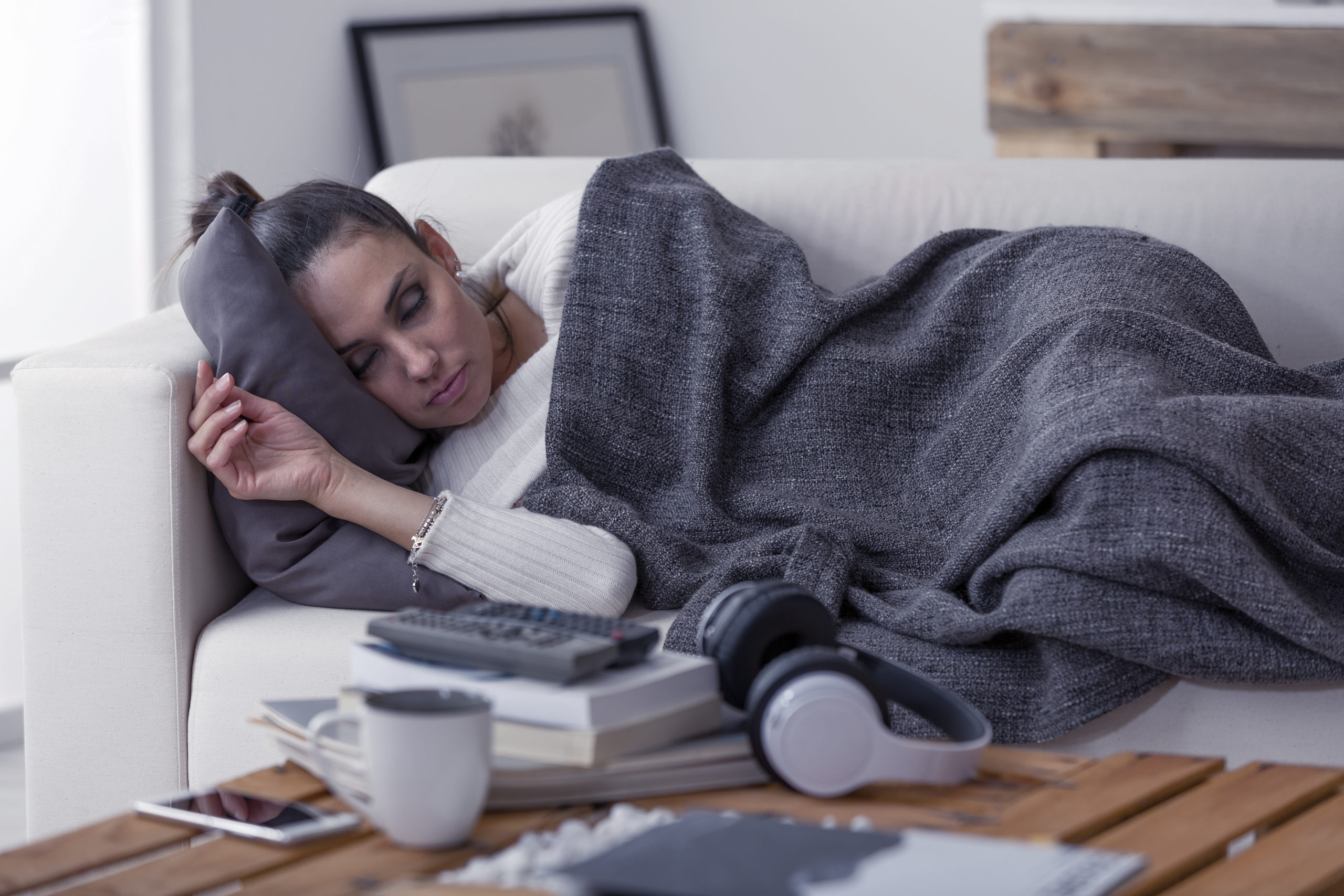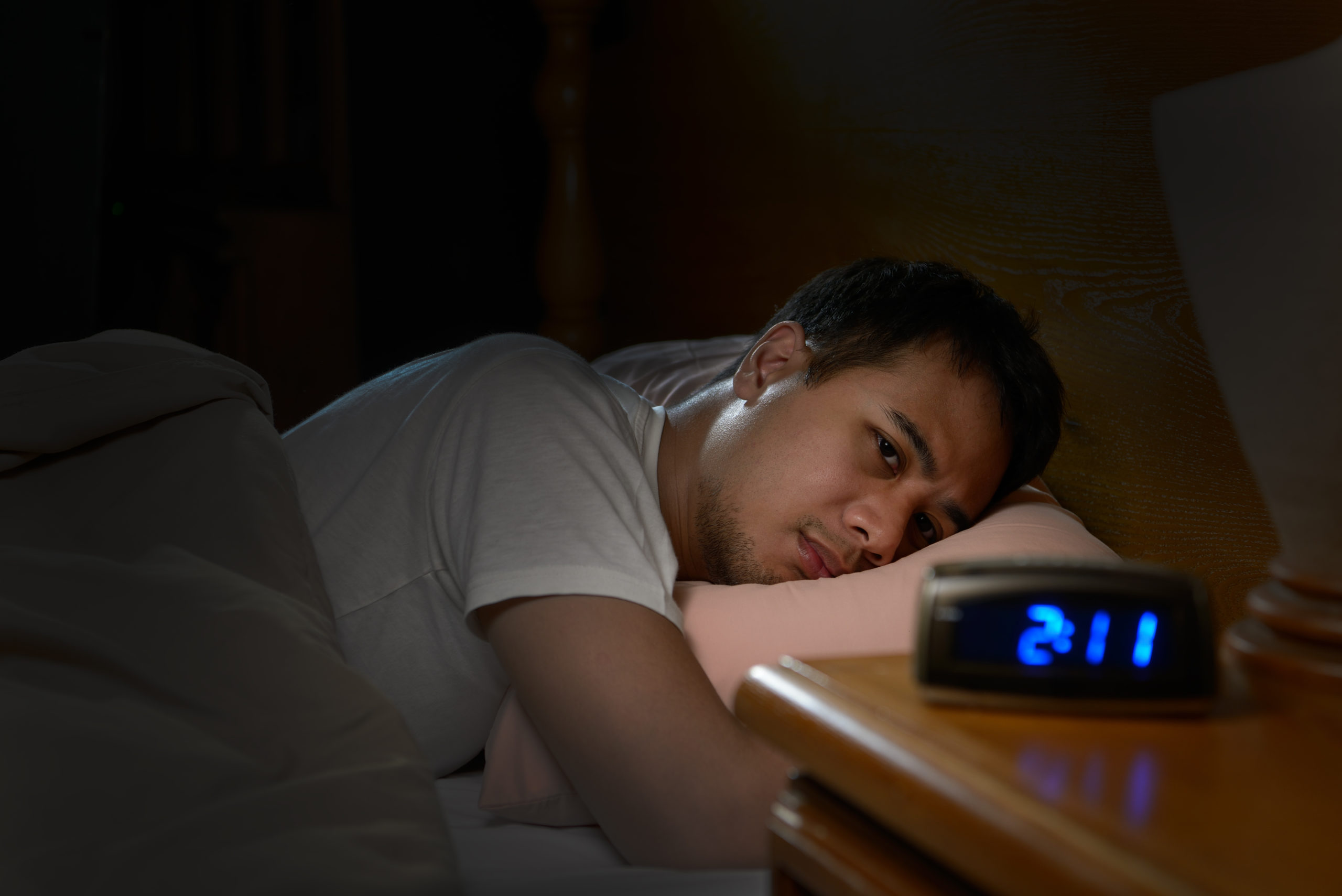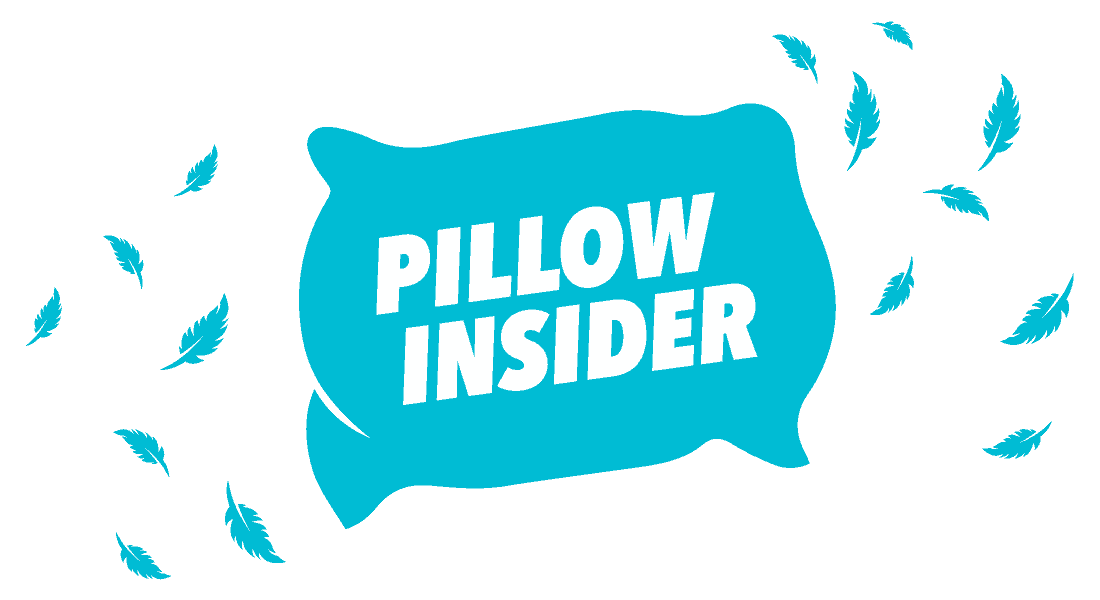There are a number of reasons why you might sleep better on the couch than in bed, and they may not be the same for every person. For some, it’s simply relief from the pressure of being expected to fall asleep simply because it’s your bed. For others, it may be related to unhealthy bedtime habits. Whatever the reason, there may be a solution to why you can’t sleep in bed but can on couch.
In this guide, you’ll learn the answer to the question “Why do I sleep better on my couch?” and you’ll learn some simple tips for falling asleep in bed.
Why Is It Easier to Sleep on the Couch?
If you’ve never fallen asleep on the couch, you’re in the minority. There’s a difference, however, between taking a quick nap on the couch and spending the entire night there. Those who find themselves sleeping on the couch more often than not often wonder, “Why do I fall asleep on the couch?” Turns out, there are several possible reasons.
First, there’s no pressure involved in sleeping on the couch. Your bed is a space for intended sleep, but if you struggle with insomnia or other issues that make it hard to fall asleep, the added pressure might compound the problem. Changing to a new environment can be all you need to get to sleep and it may even be a more comforting environment.
Some people find it difficult to sleep in bed when they share it with a partner. Snoring, blanket hogging, and limited space are things that take time to get used to and some nights desperation drives you to the couch. Even if you’re used to sleeping with your partner, tension in the relationship might make it difficult to fall asleep next to them; the couch simply might be more comfortable for a night or two.
It may also simply be that you find the living room a more comfortable environment. Streetlights shining through the window or noise from a neighbor might make it hard to fall asleep in the bedroom. A quiet, dark living room could be a more conducive environment for sleep. If your mattress is old, the couch might actually be more supportive and some people simply like curling up against the back of the couch.
Is It Bad to Sleep on the Couch?

Sometimes the couch is simply the most comfortable option to get to sleep. If you spend most nights sleeping on the couch, however, you may start to notice some side effects.
Here are some potential negative effects of sleeping on the couch:
- Neck and back pain
- Poor sleep quality
- Leg pain
- Poor hygiene
Couches are designed to deliver short-term comfort but they aren’t always the most supportive. Even if you lie flat on the couch instead of propped up on the arm, it’s difficult to achieve proper sleep posture to keep your head, neck, and spine in alignment. Poor sleep posture can lead to muscle stiffness, neck pain and back pain.
Though it may feel more comfortable to sleep on the couch, it doesn’t always result in quality sleep. You’re more likely to be falling asleep with the TV on and might be disturbed during the night by others moving around the house. Again, poor sleep posture can also affect the quality of sleep you’re able to achieve.
Sleeping on the couch may be easier for some people than for others. If you’re very tall, you may find one of your legs sticking out over the edge or propped up on the foot of the. Leg elevation can be good for circulation, but dangling your foot over the edge may lead to tingling or numbness in the legs and feet.
You may also find it more difficult to regulate your sleeping temperature on the couch. If you already tend to sleep hot, the thick fabric or leather of a couch might trap your body heat and make you even warmer. Mattresses are generally designed to keep you cool AND comfortable. Sweating on the couch can create an unhygienic situation, even if you throw down a sheet. Couches simply aren’t designed to breathe the way mattresses are.
Are There Benefits to Sleeping on the Couch?
The couch isn’t the ideal environment for quality sleep, but it isn’t all bad. In fact, sleeping on the couch could provide some temporary benefits.
If you’re suffering from a cold, the couch is a great place to keep yourself propped up overnight. Elevating your head can help alleviate congestion, so you may find it easier to fall asleep. For insomnia sufferers, the change of location might be enough to help you fall asleep after tossing and turning in bed.
Though sleeping on the couch can often contribute to neck pain, some people find it more supportive than their mattress. If you suffer from chronic neck pain, you might try sleeping with your head elevated on the couch for a night or two to see if it helps.
Simple Tips for Falling Asleep in Bed

We all have our unique daily routines but what you may not realize is that some of those routines could be working against you. The things you do in the hour leading up to bedtime could sabotage your ability to fall asleep, leading you to toss and turn until you end up on the couch. Taking simple steps to develop a healthier bedtime routine could help.
Here are some simple steps to fall asleep in bed:
Don’t do anything in bed other than sleep Once you get in bed, turn off your phone and avoid keeping a television in the bedroom.
- Get out of bed if you can’t sleep. If you spend more than 15 minutes struggling to fall asleep, get out of bed. Do some kind of quiet and relaxing activity elsewhere until you get sleepy then try again.
- Create a relaxing bedtime routine. Start winding down about 30 to 60 minutes before bedtime to get your mind ready for sleep. Try taking a hot bath or read a book to relax.
- Make sure your room is cool, dark, and quiet. Use blackout curtains if necessary and turn down the thermostat by a few degrees at night. If noise is an issue, use a white noise machine or try sleeping with ear plugs.
All of the tips above are designed to help you cultivate something called “sleep hygiene.” Sleep hygiene is simply the cultivation of daily routines and a bedroom environment that supports consistent and uninterrupted sleep. Try implementing one of these tips at a time and see how it impacts your sleep. The healthier your habits, the better your sleep will be!
Bottom Line
If after reading this guide you find yourself saying, “I like sleeping on the couch,” that’s perfectly fine – if you don’t do it every night. While sleeping on the couch can be beneficial if you’re suffering from a cold or struggling with insomnia, you really need the consistent support of a mattress to get a good night’s sleep.
Try some of the tips provided above to develop healthier bedtime habits. In time, you may just find that it’s easier to fall asleep in bed. Your couch might even start to miss you!
